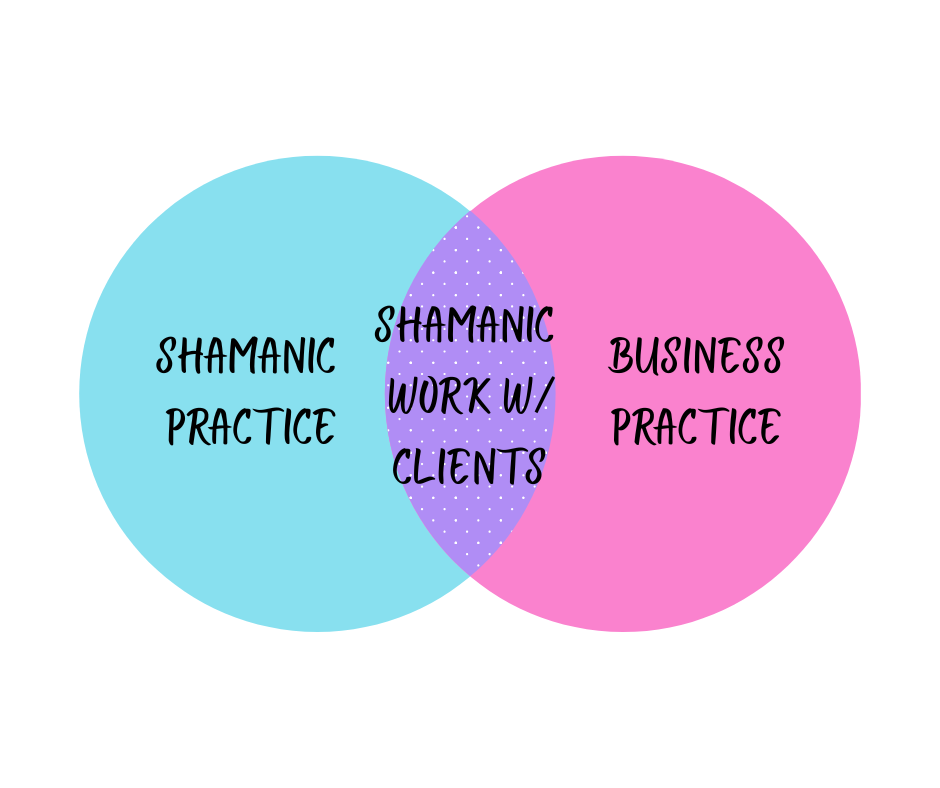Practitioners! Healers, coaches, therapists, bodyworkers — Today’s article is personalized for you.
(Non-practitioners — your personalized article went out the other day. Did you see it?)
“I’ve been practicing for a long time but I know there are more intuitive or Shamanic gifts that I need to explore and incorporate into my work.”
“I’ve taken so many trainings, courses and workshops in spirituality and healing modalities, but I feel like there’s something missing. I still don’t feel like I’m fully embodying my personal magic and I need help figuring out what that is.”
“I feel called to be a healer or spiritual practitioner because I want to help people, but I’m not sure where to start.”
These are just a few of the common themes I hear from people coming to me for support.
Do any of these sound like you?
Hi! I’m Michelle Hawk — Shamanic mentor and teacher. I’ve been studying and practicing Shamanism and other modalities since 2003.
There were so many times, particularly during the beginning of my journey, where I felt confused, frustrated and as though I was fumbling around in the dark. I was going through intuitive healership initiations and mediumship awakening. The thing that made the biggest difference for me was the personal guidance and mentorship of powerful teachers and healers.
Instead of feeling lost and alone, I felt seen and supported.
Instead of feeling like I was totally crazy and making things up as I went along, I felt validated and empowered.
I have been so blessed to receive support from some fantastic mentors over the last 20+ years. I know how essential it is to have someone in your corner who understands what it means to go through spiritual initiations and guide you through deep transformation into grounded mastery.
Do you need that kind of support?
Do you want it right now?
I am opening spaces for new clients to come into 1:1 Shamanic mentorship work with me!
***There are no prerequisites for working 1:1 with me. I work with advanced practitioners who have years of training and study and want personalized support for themselves and their work. I also work with new and aspiring healers and practitioners who want support in foundational skill development and processing their awakening.***
This work is for you if:
You’ve been studying energy healing or various modalities for a long time but it feels like something’s missing. You want to go beyond the certifications and modalities to anchor into your personal gifts and authentic magic.
You have taken lots of online classes, read lots of books and want practical, personal support that goes beyond a generic “Spiritual 101” curriculum.
You have a gift for intuitive practice, channeling and mediumship, and you want to explore it safely with support and guidance to discover the authentic expression of your intuitive gifts.
You feel the presence of spirit guides and you know you are going through powerful spiritual initiations. You want help anchoring the codes and transmissions that you are receiving so you can integrate them fully into your life and your practice.
You have been “on the path” for a while, but you feel like you’re not growing past a beginner or intermediate level, and you want to source your practice from deep knowing and mastery, and refined spiritual skill development.
You feel stuck or blocked in your continued development, or like you’ve reached a plateau, and you’re looking for some fresh energy and perspective to help you renew your transformation and growth.
You have a professional spiritual or healing practice and you are tired of trying to make it fit in a box that was never meant for you. You want someone to help you structure your programs, offerings and business practices in a way that actually aligns with your sacred work and your lifestyle.
You are a practitioner, healer, therapist, coach or medical provider. You have been “in the closet” about your Shamanic, intuitive or magical self, and you are ready to stop hiding and start sharing this aspect of your practice.
You have a “normal” job or career that is making you miserable and you are finally ready to shift out of it and explore your soul-aligned service.
You want support from a grounded spiritual mentor who has been on this path for a long time, who can help you see what you might be missing and give you specific tools, teachings and guidance that is aligned for you as you grow and transform.
If any of this sounds like you, I invite you to step into 1:1 Shamanic Mentorship with me.
Our sessions together may include some combination of the following:
Shamanic and energy healing work.
Teaching and instruction about specific principles and tools of spiritual practice from Shamanism, Alchemy, and other lineages.
Shamanic journeying, intuitive and mediumship practice to connect with the spirits for guidance and healing.
Personal ritual or ceremony.
Learning and practicing embodiment and movement work, consciousness practices, energetic techniques.
Personal guidance, processing, support and reflection.
Working with your spiritual business or soul-aligned practice, planning and strategy.
With 1:1 Shamanic Mentorship, you get me in your corner for 3 months of personal support. 3 sessions x 3 months = 9 sessions of powerful work.
If you’re ready to work deeply with a mentor who gets it —
If Spirit is beckoning you to step into mastery and you want support while you do —
If you’re aching to express your personal magic and higher service and you want a guide in your corner to help you —
>>>Book a call with me to discuss if this work is right for you!
Many blessings,





